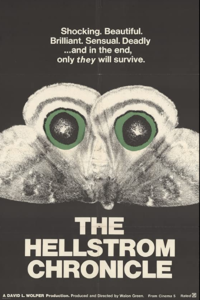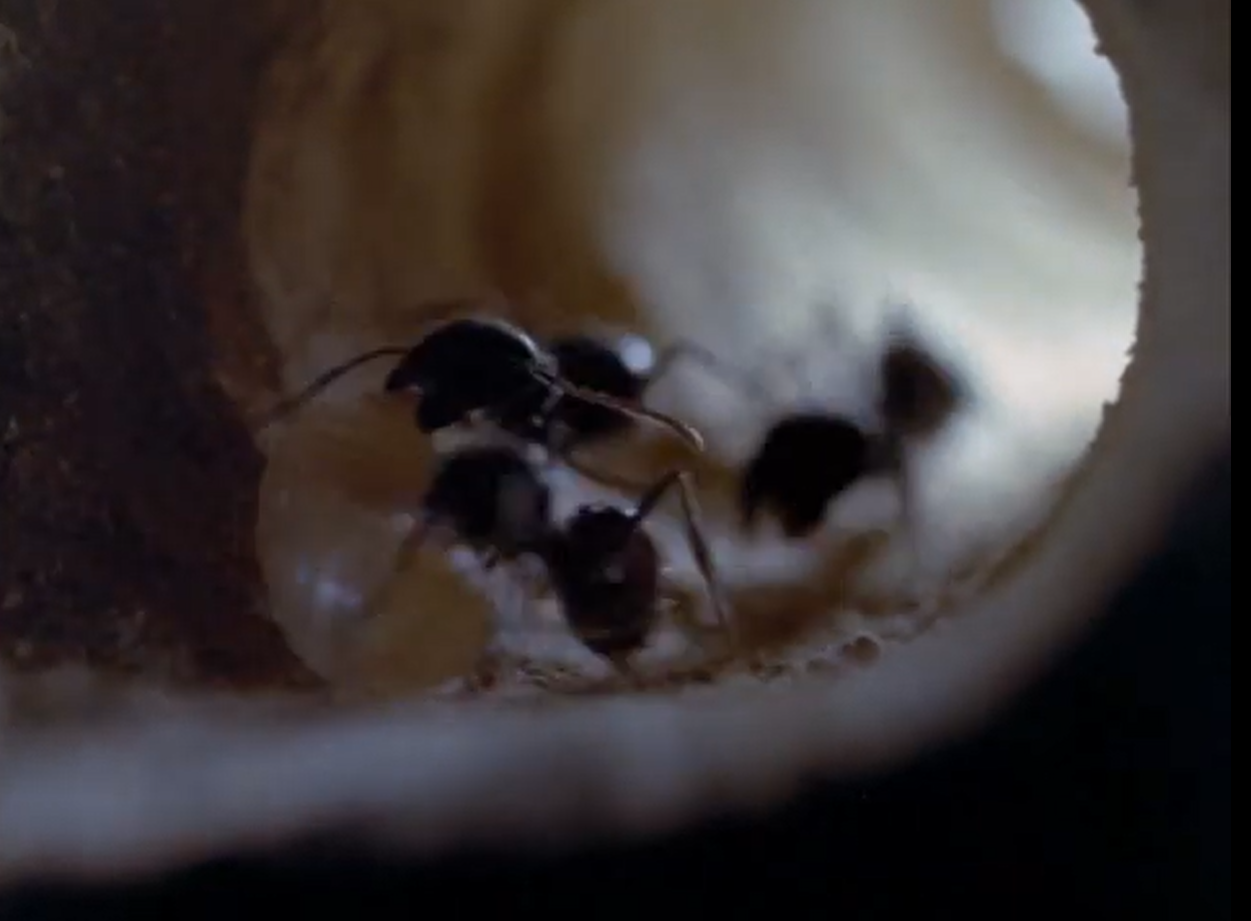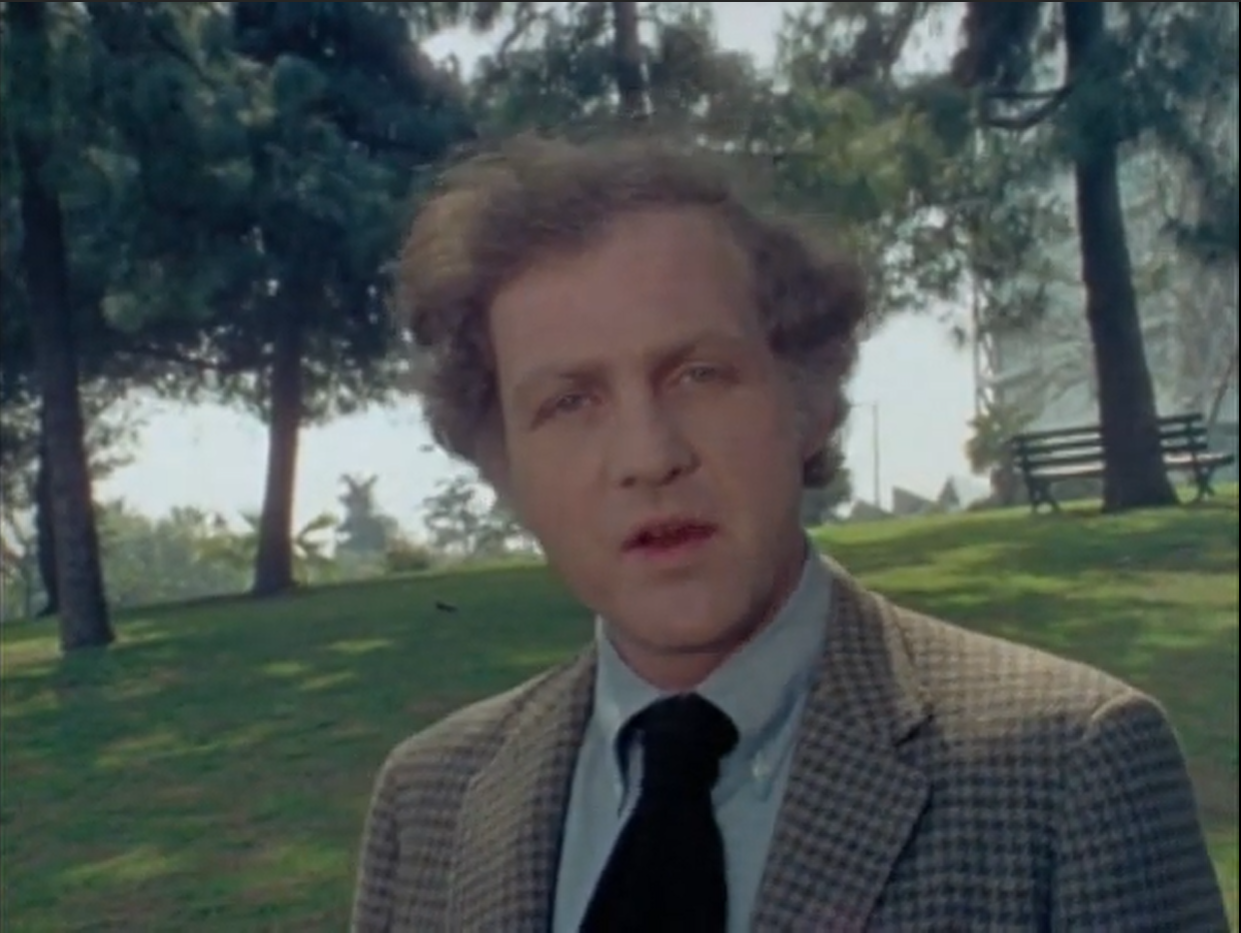Hellstrom Chronicle, The (1971)
“In fighting the insect we have killed ourselves, polluted our water, poisoned our wildlife, permeated our own flesh with deadly toxins. The insect becomes immune, and we are poisoned. In fighting with superior intellect, we have out-smarted ourselves.”
|
Synopsis: |
|
Genres, Themes, Actors, and Directors:
Review: With that said, Dr. Hellstrom’s narration is undeniably full of what Vincent Canby of the New York Times refers to as “asinine statements”; it’s impossible to take Hellstrom seriously when he begins by gravely informing us that “the world was created not with the sweetness of love, but with the violence of rape,” and later describes a black widow spider as “throbbing with obese sexuality”. Indeed, Hellstrom’s anthropomorphization of the insect world borders on sheer lunacy at times — did audience members at the time really buy his rhetoric? Would audiences today? While several legitimate research institutions (including Cal Tech and the Entomological Society of America) are cited in the film’s credits as having “provided assistance”, Hellstrom’s analysis (a synthesis of “contemporary opinions”) is — frustratingly — often simply wrong and/or dated. During the sequence in which he compares the mating rituals of humans with insects, for instance, he laments how “inefficient” our methods are, shaking his head in dismay: “For man, unless the setting is right, the perfume is right, the music is sweet, and at least one partner is loved by another, the reproductive act might never occur.” Yet it’s widely acknowledged by scientists today that humans’ strategic mating patterns perfectly suit our need to establish dedicated caretakers, given how long newborns and children require adult assistance to survive. Later, he bashes humans’ need for philosophical inquiry by noting:
According to Hellstrom, then, insects will ultimately outlive humans because they never stop to reflect — yet as Roger Ebert puts it in his review, “I don’t care how well the bees have got things organized, I wouldn’t want to be a bee. And not a May fly, either.” With that said, if one can ignore the blatant inaccuracies in Hellstrom’s narration — and simply laugh along with the faux gravity of his “dire warning” about insect domination — viewers are guaranteed a fascinating glimpse at a world we’re rarely able to view in such detail. Redeeming Qualities and Moments:
Must See? Categories
Links: |






One thought on “Hellstrom Chronicle, The (1971)”
First viewing. A once-must, for its unique cinematography and because, as stated, “viewers are guaranteed a fascinating glimpse at a world we’re rarely able to view in such detail.”
It’s interesting to note what the director Walon Green later said of his film, calling it “almost yellow-journally but good. We were giving the audience an elbow to the ribs every third line.” (Wikipedia)